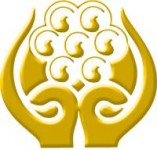Media matters raised at SAARC
The media climate here is unusual. The day before the inaugural the morning newspapers in this country carried a full page advertisement which said Stop War on Journalists.
SEVANTI NINAN reports from Colombo
Journalists gathered to cover the 15th SAARC summit found themselves required to report at 6.30 am for a 11 am inaugural ceremony. The security requirements of a summit being hosted by a nation at war, are time consuming to put it mildly. A large number of those who arrived in Colombo therefore opted to watch it on television.
The media climate here is unusual. The day before the inaugural, when heads of state were scheduled to come in, the morning newspapers in this country carried a full page advertisement which said Stop War on Journalists. It was signed by representatives of eleven opposition parties, and said: .
…independent media and journalists in Sri Lanka today are terrorized through a spate of killings, abductions, assaults, arbitrary arrests and detentions. They are subject to violence, both physical and verbal, to a degree that is unprecedented.
It then laid out the eight points raised by media organizations in the country. Among these was the fact that the Government had failed to complete any of the investigations on attacks on media in the past two years. It also recalled two amazing incidents. One in which the country’s labour minister had entered the state radio corporation, Rupavahini and voiced threats against specific media groups which were later carried out, another in which the chairman of the state-owned Sri Lanka broadcasting corporation had threatened and named independent journalists and media organizations as being inimical to "national security." The advertisement also noted that the official website of the Defence Ministry had labeled media institutes, editors and journalists as traitors, requesting soldiers to treat them as they would terrorists.
In the face of all this being brandished in the faces of their SAARC visitors, the political establishment in Sri Lanka has responded with impervious rhetoric. At the inaugural session of the conference of the South Asia Free media Association which is usually held in tandem with SAARC, Sri Lanka’s media minister Anura Priyadarshina Yapa heard out enumeration of the anti-media actions listed above and responded with a presentation of the challenges to Sri Lankan democracy, the record of the state media which he said had played a crucial role in ridding the Eastern province of terrorism, and with the suggestion that there should be a South Asian news agency. "Let us write our stories ourselves," he said. He ended by wishing everybody compassion, and wholesome journalistic experiences. It was as if nothing at all had been said about the state of Sri Lanka’s non-state media.
On August 1st when foreign ministers of SAARC countries addressed journalists to respond to a list of demands, the Sri Lankan Foreign Minister made a florid speech about media being a force for good, and deflected the complaints about attacks by saying that if anything politicians were even more vulnerable. "As foreign minister of Sri Lanka , death threats are a 24 hour living reality for me." He also made a foray into media ethics: "There are profound ethical issues that all of you from the media have to grapple with. We South Asians belong to multi-ethnic and multi cultural societies. Should therefore the media report the whole truth and nothing but the truth, despite the possibility that sometimes narrow and sectarian interests could exploit such reportage for their divisive motives?" He suggested that SAFMA do something to promote best practices in the profession.
The session with the foreign ministers had begun with the secretary general of SAFMA raising issues of the freedom of media in a conflict situation. Ten journalists had been killed already this year in the South Asian region, he said. He pointed out that since 2002 a protocol on the free movement of journalists had been on the table but no action had been taken on it. Visas were problem particularly for India and Pakistan, after the democratic government took over the in Pakistan visas had been even more difficult. He also raised the issue of connectivity: the Bangladeshis had to come to Colombo via Bangkok, the Pakistanis via Dubai.
Of the foreign ministers who spoke, Pranab Mukherjee made only a passing reference to the demands which were made, but said at the outset that it was the job of media persons to give the correct information and pace things in correct perspective. The Nepal and Pakistan foreign ministers were united in expressing appreciation of the media’s role in their battles against a monarchy, and against military dictatorship in the latter case. Pakistan’s Makhdoom Shah Mahmood Qureshi who spoke last for alphabetical reasons won media hearts by making all right populist noises. (It also helps that he looks and emotes like a movie star.) He said that in the issue of liberalization of visa regime which he had raised with Pranab Mukherjee there was to be a component for journalists. He wanted a situation he said "where journalists don’t have to come to the ministry of interior seeking and begging for a visa." People were too charmed to reiterate what was said at the beginning of the meeting-- that if anything, visas have become even more scarce under the new coalition government.
The refreshing note at this media gathering has been struck by Bhutan whose journalists keep saying almost apologetically that since both democracy and media growth were new in Bhutan there was nothing to report to a conference like SAFMA. "No violence. No harassment, nothing." And no terrorism either. But now, they promised, "the role of media is going to be important."







